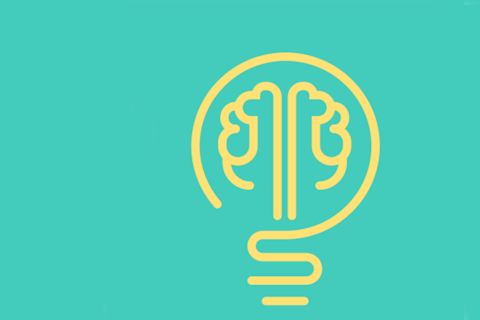How The "Neurocycle" App Has Helped Support My Mental Health While My Therapist Is Away

Mental health is a topic that has taken center stage over the last several years, with more and more people following the necessary steps to improve their general mindset and work through personal trauma. I personally have been going to therapy for years, but when my therapist took the month of August off, it was the perfect time to test out Neurocycle, an app that challenged me to observe my thought processes from the comfort of my phone, leveraging technology for good.
What to know about the app.
The Neurocycle app from communication pathologist and cognitive neuroscientist Caroline Leaf, Ph.D., offers a 63-day course to enhance awareness and improve your mental health, posing questions that require you to consider how your habits are affecting anxiety, whether you are aware of your thought cycle, among other introspective ideas. "[This is] the first ever scientifically tested brain detox app, shown to help reduce anxiety and depression by up to 81%," Leaf says in a recent YouTube video.
The app includes mini neurocycles and decompression guides for "soothing your inner child," grounding yourself, and sparking creativity, with a calendar available to track your progress in different mental health areas as you move through the program.
As someone who obsessively tracks nearly every aspect of my life from the books I'm reading to what movies I've watched, it's satisfying to be able to quantify my mental health progress as well, easily accessible in one app.
My experience.
Since I haven't had my therapist to bounce my ideas off of once a week over the past month, I've been forced to observe my own thoughts and come up with my own solutions to issues. But when that becomes overwhelming, I'm thankful that I have Neurocycle to lean on, providing de-escalation tips for anxiety, actionable advice for dealing with burnout, and even methods for dealing with the unfortunate habit of jumping to conclusions.
I'm partial to the concept of following a preplanned schedule each day, so the 63-day course is perfect for my slightly controlling tendencies, but if you enjoy working on the fly, you have the freedom to select audios that fit with your current mental space and address more specific needs.
Bottom line? No matter what path my mind decides to take me down that day, there's a relevant neurocycle I can listen to that will de-escalate the situation into manageable territory. Think about it like a gentle podcast for your mental health. There's even a 14-minute cycle on people pleasing, one of my most notorious bad habits.
The takeaway.
While I wouldn't necessarily classify this app as a replacement for therapy, it has been for me a great way to bridge the gap until my therapist comes back from vacation, and it will be useful in my day-to-day when I have specific concerns I want to address. For anyone who likes taking actionable steps of care, this is the ideal platform to quantify your improvement and increase your self-awareness. As we work to make mental health care more accessible, this app is an excellent asset for anyone looking for a little extra support.

